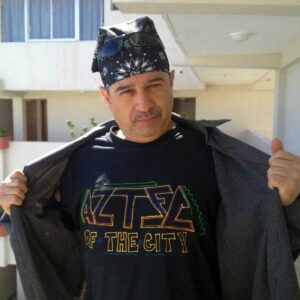Karate, the ancient Japanese martial art, has been part of Baja California Sur’s cultural fabric for more than five decades. Introduced in 1974, it has produced national and international champions and continues to inspire new generations. Every October 25, World Karate Day honors one of the world’s most respected and widely practiced martial arts, a discipline deeply rooted in the sporting spirit of La Paz.
Karate’s story in the state capital began when Master José de Jesús Linares, originally from Ensenada, arrived in La Paz to teach the art. His efforts laid the foundation for a legacy of students and instructors who have shaped generations of athletes and teachers.
Before karate took hold, judo was the first martial art formally taught in BCS by Master José Villanueva, who later became one of Linares’ first students. From there, a new era of martial training flourished across the peninsula.
One of the most knowledgeable figures in this history is Francisco Ruiz, a martial arts master who has taught karate for more than 30 years. Ruiz began training in 1988 at age nine in a small neighborhood dojo in La Paz. Encouraged by his mother to build self-confidence and discipline, he earned his black belt six years later.
His first instructor, Sensei Alberto Flores, was a direct student of Master Linares and later a pupil of Sensei Wilbert Kamal, now living in Cabo San Lucas. This chain of mentorship has preserved karate’s teachings and philosophy in Baja California Sur for over 50 years.
After earning his black belt, Ruiz began assisting his instructor at a dojo near Boulevard José Mujica and Jalisco Street. By 19, he was teaching independently in Costa Azul, training about 20 students. He eventually paused teaching to study law and work as an aircraft mechanic.
In 2000, Ruiz moved to Chihuahua to continue his aviation career. There, he met Sensei Javier Mendoza, who encouraged him to return to teaching. Ruiz soon began instructing at Mendoza’s dojo and later opened his own school, training 100 students and forming his first group of black belts.
Five years later, in March 2007, Ruiz returned to La Paz and reopened his dojo in the Camino Real neighborhood, where he continues to teach. Since December 2010, his school, the Ruiz Shotokan Karate School has trained multiple generations of black belts who have competed at national and international levels.
“Karate is much more than a sport. It’s a way of life,” said Ruiz. “It’s an honor to guide children and young people. Some began training with me at four or five years old, and now they’re in university. Karate has been part of their entire journey.”
Ruiz emphasizes that karate’s value lies not only in physical training but also in mental discipline and personal growth. Students develop coordination, emotional control, and confidence. Beginning with the white belt, a symbol of purity and the will to learn, they progress through ranks that demand patience, humility, and perseverance.
Located on Ocre Street between Cuera and Tiro in Camino Real, the Ruiz Shotokan Karate School offers evening classes from 6:00 to 9:00 p.m., divided by age and skill level. Enrollment is open to anyone aged four and older. Classes are taught by Francisco Ruiz and his daughter, Sensei Vianey Ruiz, a black belt and graduate in Educational Sciences.
“Teaching alongside my daughter has been one of the most rewarding experiences,” said Ruiz. “She represents the continuation of this legacy. Seeing new generations embrace karate assures me the discipline will continue to thrive in Baja California Sur.”
As the world celebrates World Karate Day, the story of karate in Baja California Sur stands as a testament to the dedication of teachers and students who have kept alive a practice that teaches not only how to fight, but how to live with respect, courage, and integrity.
For more information, visit the school’s Facebook page, Escuela de Karate Ruiz Shotokan, or call 612 140 0087




